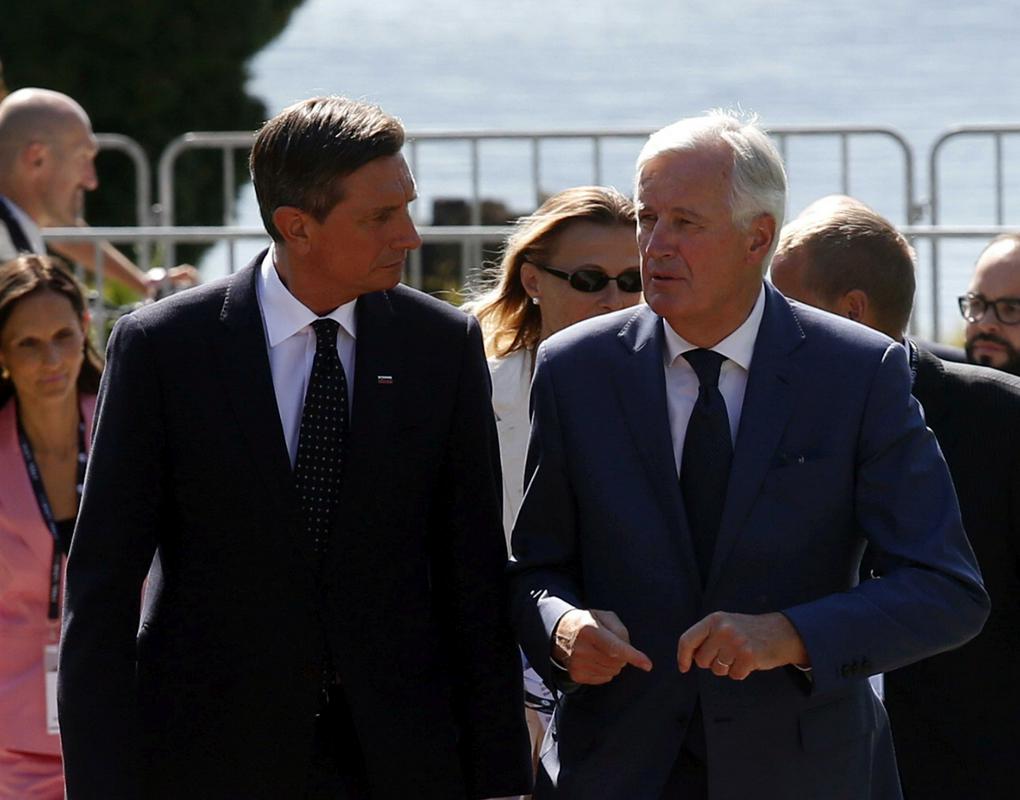
pointed out.
Pahor said that the EU is at a standstill, but that this standstill does not mean that time is standing still and that the EU is in some kind of a frozen state. ‘On the contrary. We see a clear lack of vision for the future strengthening of the EU, and the return to nationalistic politics appears to be clearer,’ Pahor said. According to him, this standstill does not mean that we are all waiting idle. ‘It is obvious that those who are not in favour of the future strengthening of the EU are moving on. And those of us who are in favour of such strengthening are standing still,’ Pahor warned. That is why, according to Pahor, the EU’s current standstill will turn into a crisis, if nationalist politics will begin to prevail.
‘Pro-European politics, fearing for its positions, is adjusting to it. It is not providing an alternative. In my opinion, this can no longer continue. Some sort of political risk must be taken. We must expose ourselves,’ said Pahor. He also addressed the topic of EU’s enlargement to the Western Balkans, saying that Slovenia strives for these efforts to succeed. ‘A weak EU will not be enlarged to the Western Balkans,’ he pointed out.
Pahor criticised the European Commission, because it did not acknowledge the decision made by the arbitration tribunal on the border dispute between Slovenia and Croatia. ‘Why would the Balkan countries strive to reach an agreement, if those agreements do not need to be respected,’ wondered Pahor.
Cerar: Important changes await us
The opening ceremony was addressed by caretaker Prime Minister Miro Cerar. According to Cerar, numerous important decisions await Europe in the following months, including issues regarding Brexit, which will once again stress the true strength of the EU. ‘Only in this way we as Europe can be a true player in the relentless global arena, bridging the divides of our time,’ added Cerar, who will assume the position of foreign minister in the new government. Cerar also added that Slovenia will continue to contribute to those goals.
Cerar warned that the world has changed dramatically during the recent years, as the economic order and strategic alliances that had been known for decades were called into question. Isolationism and political radicalism are on the increase. According to Cerar, all of this is giving boost to growing individualism and divisions in our society. ‘There can be no winners on this path. If we really care for the prospects of our countries, for the well-being of our citizens, for the future of Europe and world, we need to bring change,’ added Cerar,who will become in charge of Slovenia’s diplomacy this week. He also said that politicians sowing fear and division for their own political goals should be confronted. ‘Not by force, but by continuously stressing pure facts about reality and by promoting ethical and democratic values,’ he said.
Bled Strategic Forum is one of the most important foreign policy events in Slovenia
BSF, a meeting point for politicians, economists and representatives of academic circles, is one of the most important foreign policy events in Slovenia. This year, the forum focuses on bridging divides. The two-day event will host 24 panel discussions, which is the largest number ever. Michel Barnier, EU's chief Brexit negotiator, heads the line up of foreign guests at this year’s forum.

































































